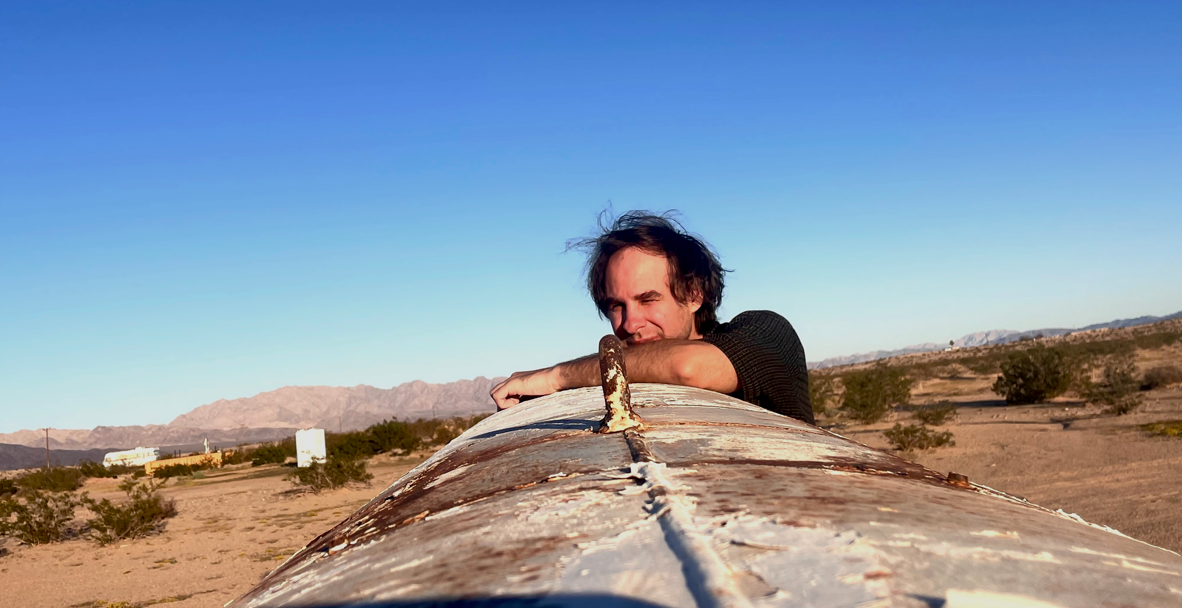
Set
Photo by Jon Tyson on Unsplash
My first proper date with my first ever girlfriend was to see Spring Breakers, the weirdest movie granted a wide theatrical release in 2013.
Directed by the mostly-underground Harmony Korrine, the film became notorious for James Franco’s performance as Alien, an off-beat, very colorful gangster with a head covered in dreadlocks and an accent somewhere between a Tallahassee truck driver and Marcellus Wallace. I saw that movie in theatres. I didn’t know it at the time, but the A24 Productions logo that kickstarted the experience would go on to become one of the most important symbols you could pin to a movie in the 2010’s. It’s since become a mark of excellence. Now, in 2020, you see a movie distributed by A24, and you know one thing: that movie will certainly be awesome, but might even be visionary, too. A24 is very quietly saving movies, and they’re doing it by going against the most time-held and obvious of box office rules: They invest in uncertainties.
That isn’t to say that they don’t invest in quality. A24 has a well-recognized eye for quality and a bent towards passionately-told stories. Making movies is prohibitively expensive, which means that distant executives often have as much say in the creative process as directors, writers, and actors. Risk-taking is usually minimized. As such, clashes between directors and executives are many and oft-publicized and not just limited to the big budget Star Wars or Marvel movies where billions of dollars are on the line.
In a 2017 Oral History of A24 by GQ, Harmony Korrine, said, “Hollywood is run by accountants at this point. And so anytime you speak with someone who’s not a pure accountant, is not a pencil pusher? It’s exciting. They [A24] had heart to them.”
What Korrine called heart is more akin to belief. A24 was, at its inception, a hectic institution run by a staff of only eight people. Bear in mind, A24 is a distribution company, meaning that outside of a few examples (Best Picture winning Moonlight, among them) A24 is not responsible for much more than purchasing a film’s rights, negotiating with theaters, executing a marketing plan, and crafting trailers. But distribution companies are where the money is. Think big studios like Paramount, Sony, Warner Bros., Universal —monstrous corporations with tens-of-thousands of people on staff and billions of dollars in annual profit. And then into their midst comes A24, founded by three veterans of the industry, David Fenkel, David Kats, and John Hodges, who recognized in 2013 that there was an unfilled niche in film distribution.
A niche that wasn’t always unfilled, mind you. The 1990’s was a glorious time for indie filmmaking, since the production of auteristic films became much more normalized and realistic as the cost of film equipment lowered in a saturated market. To meet the needs of rising, idiosyncratic directors like Richard Linklater and Lars von Trier, big distribution companies incorporated smaller arms focused on lower-budget, awards-aiming movies. Paramount started Paramount Vantage for just that reason. 21st Century Fox created Fox Searchlight. But as 21st-century films started more often aiming for the fabled billion-dollar mark, many of these arthouse-focused companies were either gutted or shuttered altogether. Paramount Vantage has been closed since 2013; Fox Searchlight has been sucked into Disney along with their parent company, and now they churn out films for Hulu.
So, there was an open slot in the market for a small company to begin distributing small films, films without an automatic audience, films that were of high quality but which didn’t carry the guaranteed interest that bigger-budget films do, or sequels, or remakes. The most important aspect for marketing an Indie film is the combination of an acclaimed director with an all-star cast. So when a distribution company goes to a film festival –like Cannes, Tribeca, or Telluride– and sees a film, they look not only for quality but also for salability. Who is this film’s audience? How many people can be counted on to get their butts in theater seats? Every film purchased by a distribution company is a risk; the company bets they can make more money off the film than what they purchased it for. And that requires an audience. Word-of-mouth doesn’t always do the trick.
We can talk for hours about all the things that have made A24 great: their discerning vision, their super successful forays into production, their guerilla marketing techniques (like making a fake Tinder for an android), their bombastic and oft-viral trailers. But the unique reason they’re so important, why they have built a niche for themselves amongst the American filmic landscape, is that they don’t limit their bets to acclaimed filmmakers, instead allowing each work to speak for itself. A24 has made a concerted effort to purchase, distribute, and commit to first-time filmmakers, not sparing them huge marketing budgets, nor heavy Oscars pushes. Because these filmmakers are often both visionary and coming from outside the industry, they create very personal, very unique films often times unlike anything audiences have seen before.
And their list of applicable directors is impressive. Just a year after opening for business, A24 had purchased five films from first time directors, including Ex Machina, the Oscar-winning debut of Alex Garland. In the next few years, A24 would supply financing and distribution for Robert Eggers’ The Witch, Trey Edward Shults’ Krisha, and Ari Aster’s Hereditary. In each of these three cases the directors continued working with A24 after their debuts, releasing their later, more sophisticated releases with the company, too. Even a huge name like Greta Gerwig had her directorial debut with A24, 2017’s Best Picture-nominated Lady Bird. And that’s without mentioning industry vets like Bo Burnham and Jonah Hill, who added their own directorial debuts to A24’s library, nor those that are forthcoming, like the British horror film Saint Maud, directed by unknown Rose Glass.
That said, it isn’t incredibly special for a number of directors to debut each year. Between 22 and 39 directors have had their formal debuts each year since A24’s inception in 2013, with A24 generally distributing about 4 or 5 such films annually. But these numbers are misleading without context.
Consider A24’s place in the film market. They’ve controlled, on average since 2013, just .58% of the market year over year, peaking in 2019 with a .95% share. And yet they release something like 15-20% of all films by debuting directors in that time. That’s hugely more than their market share should suggest. Moreover, nearly all of their films are granted wide releases in many theaters. Additionally, in many cases first-time directors work with streaming services (which don’t necessarily have to spend much on advertising or marketing budgets, nor negotiate with theaters) or have their films go straight-to-on-demand, where they generally flounder without cultish word-of-mouth. A24’s insistence on putting resources into unknowns make them an entirely unique beast among impersonal giants and smaller, budget-restricted indie distribution companies.
They’re so important because this is how the filmmaking form gets pushed forward. First-time directors have everything to prove and entire careers riding on their successes. The hurdles to creating a film are great enough –writing it, securing funding, casting it, assembling a crew, workshopping and story-boarding every frame, acquiring equipment, actually filming the thing, editing it down, mixing the sound and perfecting the visuals— without having to get it into peoples’ eyeballs. Production studios take their own risks in providing the finances necessary to create a film, and if the film can’t find adequate distribution, many livelihoods are on the line. If A24 purchases offbeat films from unknown companies, they are forcing open a market for such movies, meaning production companies will be more likely to invest in such films in the first place. Their belief trickles down to the bottom. More distribution means more production means more creation, which means more imagination, creativity, and authenticity from burgeoning artists in the first place.
So yes, A24 is an incredible company not just for producing vitally important social films like Moonlight, and not just for having a perennial hand in the distribution of Oscar-winning and Palme D’Or contending films. While it’s quite an accomplishment just to do all this with an absolutely minuscule budget compared to other prominent distributors, the greater accomplishment is that A24 has consistently and concertedly focused on debuting directors, investing in the very future of filmmaking, betting that such an investment will pay-off in their own long-term success.
There are few artistic experiences more singularly special than being with a director from the beginning. Being on the ground floor of a singular artistic expression is already a joyful experience, but getting to watch that vision build and flower and derail and reforge itself is incredibly powerful, and it’s also personal, and it affects your own taste heavily. In the age of blockbusters, where studios are condensing not only their holdings but also their outputs, converting their efforts into movies with enormous budgets and enormous possible profits, one would think it would be rarer and rarer for audiences to come across that experience I’ve just described. And yet, there is A24, a small company with a small staff and a small niche in the market that insists on bringing experiences like this to audiences.
And there’s a bright future to look forward to, because if A24 can continue to grow, there will be copycats coming for their crown. For A24, that might spell bad news, but for you and me and all the filmmakers and their ideas, it’s a great gift.














